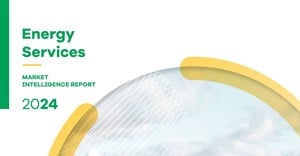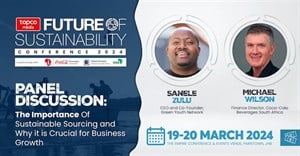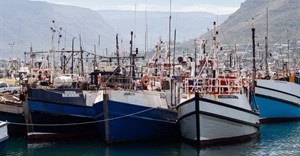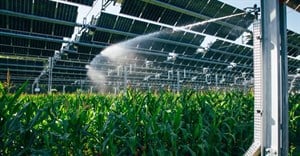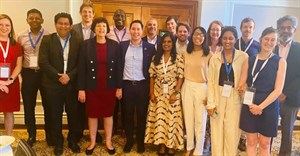Trending




 Sabre EMEA 2024 Awards: Razor PR, Retroviral top SA agenciesDanette Breitenbach
Sabre EMEA 2024 Awards: Razor PR, Retroviral top SA agenciesDanette Breitenbach
Elections 2024
South African Plastics Pact hosts CEO breakfast with Minister Barbara Creecy
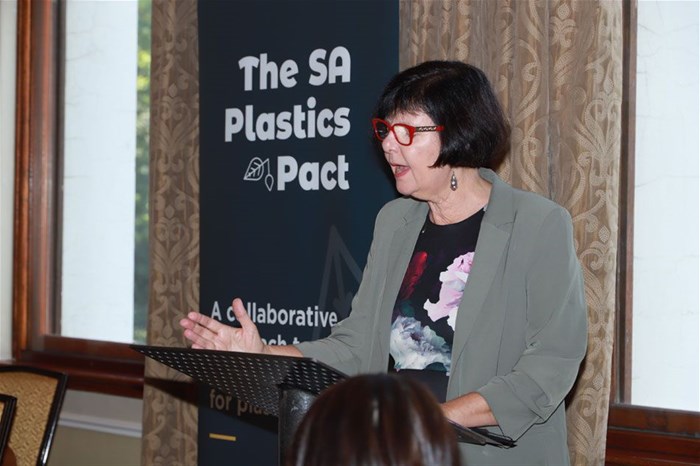
This was the key message conveyed during a breakfast engagement hosted by the South African Plastics Pact at the Taj in Cape Town on 1 November, attended by the Department of Forestry, Fisheries and the Environment’s (DFFE) Minister Barbara Creecy and senior industry executives representing organisations from across the plastics value chain.
Dr Morné du Plessis, CEO of WWF South Africa, was the master of ceremonies. He opened the event with an explanation of how the SA Plastics Pact is a valuable platform that enables the pre-competitive coming together of key role-players. “A Pact is a pre-commitment to an outcome which then acts as a firewall to distraction. That’s the spirit in which the SA Plastics Pact operates,” he said.
In her opening address and closing reflective remarks, Minister Barbara Creecy stressed the urgency of a proactive response to growing domestic and international pressures to keep plastics in the economy, and out of the environment. “If we are going to succeed in increasing recycling, it is going to have to make business sense. Reducing packaging has financial benefits right along the value chain,” she said, reflecting on the key insights from the speakers. She also highlighted the importance of supporting and integrating informal waste reclaimers.
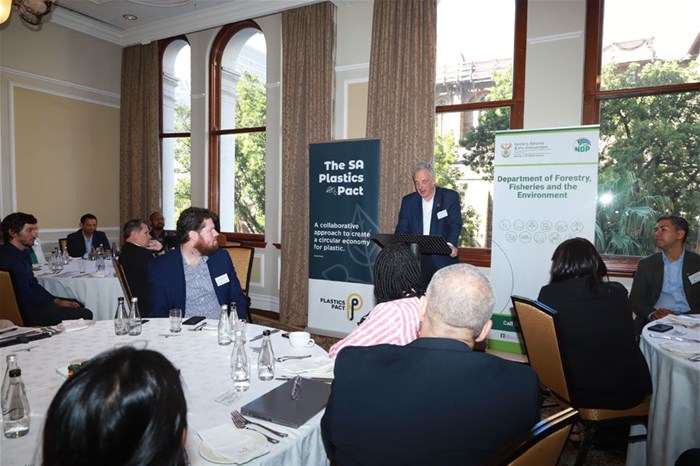
Launched in 2020, the SA Plastics Pact is a positive platform to stimulate innovation, dialogue and collaboration to unlock barriers to circularity for plastics, to create new business models and generate job opportunities. Business is demonstrating leadership, convening through the Pact to navigate the complicated transition to a circular economy, and working towards four measurable targets by 2025. “FMCG businesses play an important role in building a better and more sustainable society that consumers increasingly demand from us. As leaders, it pays to take decisive steps for our companies to reduce our environmental impact. That’s what we as the SA Plastics Pact are trying to do,” said Gareth Ackerman, chairperson of the board of Pick n Pay, one of the SA Plastics Pact founding members. “The plastic waste challenge is too great for one company, or for the government to solve. The social compact is critical to solve this challenge,” said Philippine Mtikitiki, vice-president for the South Africa franchise, Coca-Cola Africa.
The breakfast also provided an opportunity to illustrate the value of collective action, with SA Plastics Pact members highlighting how the pact is enabling collaboration towards its 2025 targets, through action groups with demonstrated progress.
“At Unilever, we are committed to the vision of an inclusive circular economy for plastic. This requires collaboration and collective action across the entire value chain, including informal waste reclaimers who are often left out. The SA Plastic Pact provides an integral platform for shared learning and synergy across the industry,” said Preola Adam, sustainability manager Africa, Unilever.
“The SA Plastics Pact provides the platform to share technical learnings with other members within the framework of the law. Members share specifics to help industry move at pace toward sustainable recyclable solutions that shift entire industries. Only through this kind of close collaboration can we build an effective circular economy for plastics in SA,” said Don MacFarlane, packaging senior, Woolworths.
By 2025, the SA Plastics Pact aims to transform the way that the SA makes, uses and disposes of plastic by meeting four ambitious targets:
- Taking action on problematic or unnecessary plastic packaging through redesign, innovation or alternative (re-use) delivery models.
- 100% of plastic packaging to be reusable, recyclable or compostable.
- 70% of plastic packaging is effectively recycled.
- 30% average recycled content across all plastic packaging.
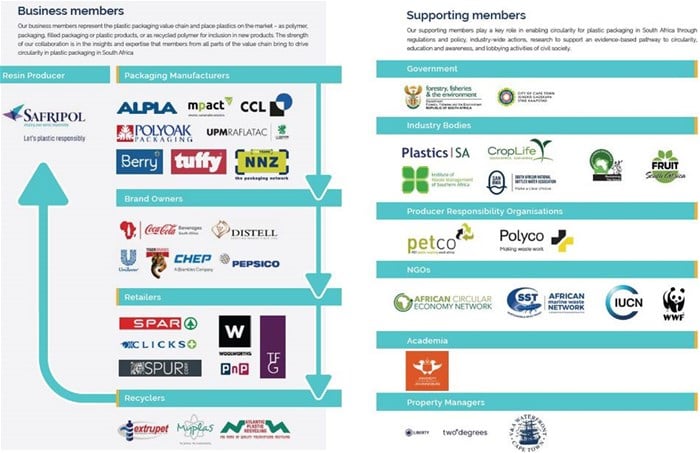
The breakfast is an example of how the SA Plastics Pact brings together all key players towards a common vision to drive solutions supporting a circular plastics economy. Business members are companies who handle plastics and plastic packaging at some point in their operations. These members include resin producers, packaging manufacturers, brand owners, retailers, food service companies (including restaurants), waste management companies and recyclers. Supporting members are organisations who have regional or national influence in policy, practice or industry support towards achieving a circular economy for plastics in South Africa.
Organisations who are interested to join the South African Plastics Pact can get in touch with Roan Snyman (az.oc.epac-neerg@naor).
The SA Plastics Pact wishes to thank the Taj Cape Town for sponsoring the venue and enabling the hosting of this event.
- New reports forecast ~32 GW of installed renewable energy capacity in SA by 203018 Apr 15:12
- South African projects seize opportunity to tackle climate crisis and create jobs02 Apr 15:10
- Energy resilience workshops for agricultural producers in the Western Cape18 Jan 15:05
- South African Plastics Pact’s members are leading investment in SA’s transition towards a circular economy10 Jan 11:44
- Samanjalo and Green Guru Solutions wins first 2023 Mpumalanga green solutions pitch challenge07 Nov 10:48


